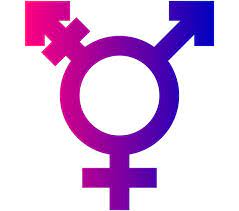Hormone disorders can be a confusing and frustrating experience, affecting everything from mood and energy levels to physical health and reproductive function. In our bodies, hormones serve as the chemical messengers that regulate important processes, and when they’re out of whack, it can lead to a variety of symptoms that can disrupt daily life. Whether you’re dealing with thyroid issues, adrenal fatigue, or reproductive hormone imbalances, the good news is that there are effective treatments available. This article aims to provide a comprehensive overview of hormone disorders, their symptoms, diagnosis, and treatment options.
Understanding hormone disorders is the first step towards effective management. Hormones are produced by glands in the endocrine system, and they play a crucial role in regulating many bodily functions, including metabolism, growth, mood, and sexual health. Hormone disorders occur when there is an imbalance—either too much or too little of a particular hormone. Factors that contribute to these imbalances can include stress, diet, genetics, aging, and environmental influences. Recognizing these factors can help individuals take proactive steps in managing their health.Trans Femme MeaningHow Long Do You Have To Dilate After Bottom SurgeryMale To Female Transition Before And After
Common types of hormone disorders include conditions like hypothyroidism, polycystic ovary syndrome (PCOS), and adrenal insufficiency. Symptoms can vary widely, but they often overlap, making it challenging to pinpoint the exact issue. For example, those with hypothyroidism may experience fatigue, weight gain, and depression, while individuals with PCOS might notice irregular menstrual cycles, acne, and excessive hair growth. Understanding the specific symptoms associated with different hormone disorders can help individuals identify potential issues early on and seek appropriate medical advice.
Diagnosis: How Doctors Identify Hormone Issues
Diagnosing hormone disorders typically involves a combination of medical history, physical exams, and laboratory tests. Doctors will often ask about symptoms, lifestyle factors, and any relevant family history. Along with a thorough discussion of symptoms, they may order blood tests to measure hormone levels, which can indicate whether certain hormones are too high or too low. In some cases, imaging tests may also be necessary to observe the health of glands that produce hormones, such as the thyroid or adrenal glands.
It’s important to note that diagnosing hormone disorders can sometimes be complex. Because many symptoms overlap across different conditions, additional tests may be required to rule out other potential health issues. Patients may also need to track their symptoms over time, as hormone levels can fluctuate throughout the day or month. This thorough approach ensures that healthcare providers can accurately diagnose the problem and tailor a treatment plan that suits the individual’s needs.
Treatment Options: Medications, Lifestyle Changes, and More
When it comes to treating hormone disorders, there’s no one-size-fits-all solution. Treatment options often depend on the specific disorder, symptoms, and overall health of the individual. Medications are one of the most common forms of treatment. For example, individuals with hypothyroidism may be prescribed synthetic thyroid hormone, while those with PCOS might be given hormonal contraceptives to regulate menstrual cycles and manage symptoms. Other medications may be used to address specific symptoms, such as mood swings or weight gain.
In addition to medications, lifestyle changes can have a significant impact on managing hormone disorders. This can include maintaining a balanced diet rich in nutrients, engaging in regular physical activity, managing stress through mindfulness or cognitive behavioral therapy, and ensuring adequate sleep. These lifestyle modifications can help regulate hormone levels and improve overall well-being, making them an essential aspect of any treatment plan.
Hormone Therapy: What It Is and How It Works
Hormone therapy is a specific treatment that involves supplementing or replacing hormones that the body is lacking. This approach is commonly used in cases of hormonal imbalances such as menopause, where estrogen and progesterone levels drop significantly. Hormone replacement therapy (HRT) can help alleviate symptoms like hot flashes, night sweats, and mood swings, providing relief and improving the quality of life for many women.
The way hormone therapy works can vary depending on the individual’s needs. Doctors typically start with lower doses of hormones and adjust as necessary based on the patient’s response. There are several forms of hormone therapy, including pills, patches, gels, and injections, making it easier for patients to find a method that suits their lifestyle. While hormone therapy can be beneficial, it’s crucial to discuss the potential risks and benefits with a healthcare provider to determine the best course of action.
Natural Remedies: Can They Help with Hormone Disorders?
Many individuals are increasingly turning to natural remedies as a complementary approach to managing hormone disorders. These remedies may include herbal supplements, vitamins, and dietary changes aimed at balancing hormones naturally. For instance, some studies suggest that herbs like chaste tree (vitex) may help regulate menstrual cycles and alleviate PMS symptoms.
However, it’s essential to approach natural remedies with caution. Not all supplements are regulated, and their effectiveness can vary between individuals. Additionally, some natural remedies can interact with prescribed medications, leading to unintended side effects. Always consult a healthcare provider before starting any new supplements or remedies to ensure they’re safe and appropriate for your specific condition.
Lifestyle Tips for Managing Hormone Imbalances
Managing hormone imbalances often requires a holistic approach that includes lifestyle changes. Eating a balanced diet rich in whole foods—like fruits, vegetables, whole grains, and lean proteins—can support overall health and help regulate hormone levels. Incorporating healthy fats, such as avocados and nuts, can also be beneficial, as these can support hormone production.
Regular physical activity is another crucial component of hormone balance. Exercise can help reduce stress, improve mood, and regulate insulin levels, all of which contribute to better hormone health. Aim for a mix of cardiovascular, strength-training, and flexibility exercises to promote overall well-being. Additionally, practicing stress-reduction techniques—like yoga, meditation, or deep-breathing exercises—can help manage stress hormones and promote hormonal balance.
When to Seek Help: Signs Your Hormones Need Attention
Recognizing when to seek help for hormone-related issues is vital for timely diagnosis and treatment. If you notice persistent symptoms like changes in your menstrual cycle, unexplained weight gain or loss, extreme fatigue, or mood swings, it may indicate an underlying hormone disorder. Other signs to watch for include acne breakouts, changes in libido, or sleep disturbances. These symptoms could be the body’s way of signaling that something isn’t quite right.
It’s important not to dismiss these symptoms as normal, especially if they disrupt your daily life. Consulting with a healthcare provider can lead to proper testing and diagnosis, ensuring that any hormone imbalances are addressed. Early intervention can make a significant difference in managing symptoms and improving overall health and quality of life.
Hormone disorders may seem daunting, but understanding them is the first step towards effective management and treatment. With a range of options available—from medications to lifestyle changes—there’s hope for finding relief and restoring balance. Whether you’re considering hormone therapy or exploring natural remedies, working closely with a healthcare provider will help you navigate your unique journey. Remember, your hormones play a crucial role in your overall health, and taking charge of your well-being is empowering.


